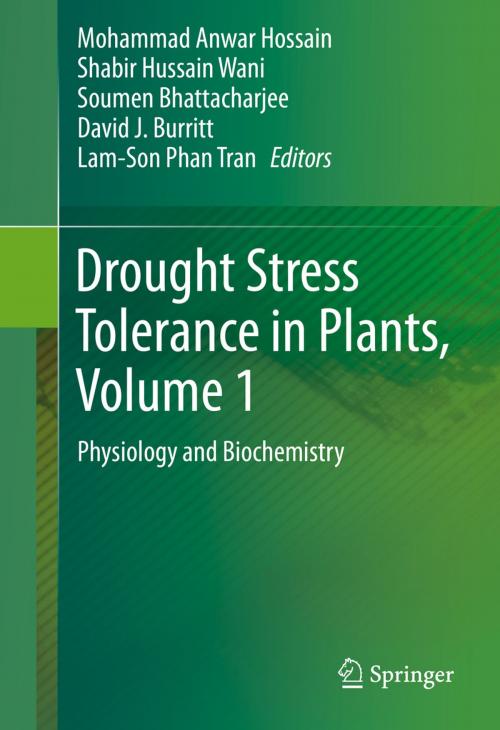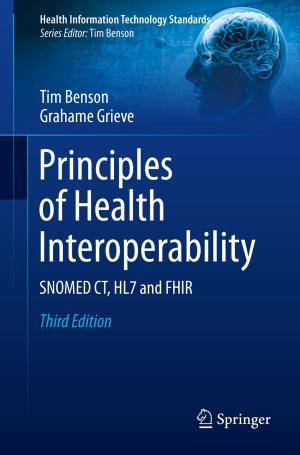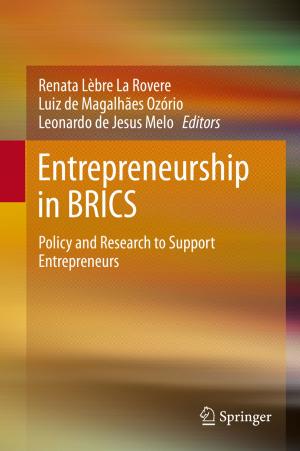Drought Stress Tolerance in Plants, Vol 1
Physiology and Biochemistry
Nonfiction, Science & Nature, Science, Biological Sciences, Botany, Technology, Agriculture & Animal Husbandry| Author: | ISBN: | 9783319288994 | |
| Publisher: | Springer International Publishing | Publication: | May 25, 2016 |
| Imprint: | Springer | Language: | English |
| Author: | |
| ISBN: | 9783319288994 |
| Publisher: | Springer International Publishing |
| Publication: | May 25, 2016 |
| Imprint: | Springer |
| Language: | English |
Abiotic stress adversely affects crop production worldwide, decreasing average yields for most of the crops to 50%. Among various abiotic stresses affecting agricultural production, drought stress is considered to be the main source of yield reduction around the globe. Due to an increasing world population, drought stress will lead to a serious food shortage by 2050. The situation may become worse due to predicated global climate change that may multiply the frequency and duration and severity of such abiotic stresses. Hence, there is an urgent need to improve our understanding on complex mechanisms of drought stress tolerance and to develop modern varieties that are more resilient to drought stress. Identification of the potential novel genes responsible for drought tolerance in crop plants will contribute to understanding the molecular mechanism of crop responses to drought stress. The discovery of novel genes, the analysis of their expression patterns in response to drought stress, and the determination of their potential functions in drought stress adaptation will provide the basis of effective engineering strategies to enhance crop drought stress tolerance. Although the in-depth water stress tolerance mechanisms is still unclear, it can be to some extent explained on the basis of ion homeostasis mediated by stress adaptation effectors, toxic radical scavenging, osmolyte biosynthesis, water transport, and long distance signaling response coordination. Importantly, complete elucidation of the physiological, biochemical, and molecular mechanisms for drought stress, perception, transduction, and tolerance is still a challenge to the plant biologists. The findings presented in volume 1 call attention to the physiological and biochemical modalities of drought stress that influence crop productivity, whereas volume 2 summarizes our current understanding on the molecular and genetic mechanisms of drought stress resistance in plants.
Abiotic stress adversely affects crop production worldwide, decreasing average yields for most of the crops to 50%. Among various abiotic stresses affecting agricultural production, drought stress is considered to be the main source of yield reduction around the globe. Due to an increasing world population, drought stress will lead to a serious food shortage by 2050. The situation may become worse due to predicated global climate change that may multiply the frequency and duration and severity of such abiotic stresses. Hence, there is an urgent need to improve our understanding on complex mechanisms of drought stress tolerance and to develop modern varieties that are more resilient to drought stress. Identification of the potential novel genes responsible for drought tolerance in crop plants will contribute to understanding the molecular mechanism of crop responses to drought stress. The discovery of novel genes, the analysis of their expression patterns in response to drought stress, and the determination of their potential functions in drought stress adaptation will provide the basis of effective engineering strategies to enhance crop drought stress tolerance. Although the in-depth water stress tolerance mechanisms is still unclear, it can be to some extent explained on the basis of ion homeostasis mediated by stress adaptation effectors, toxic radical scavenging, osmolyte biosynthesis, water transport, and long distance signaling response coordination. Importantly, complete elucidation of the physiological, biochemical, and molecular mechanisms for drought stress, perception, transduction, and tolerance is still a challenge to the plant biologists. The findings presented in volume 1 call attention to the physiological and biochemical modalities of drought stress that influence crop productivity, whereas volume 2 summarizes our current understanding on the molecular and genetic mechanisms of drought stress resistance in plants.















